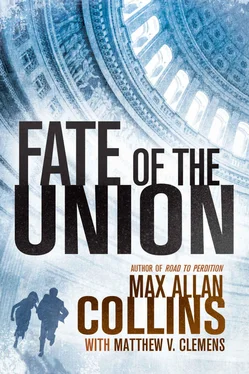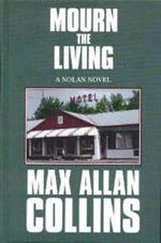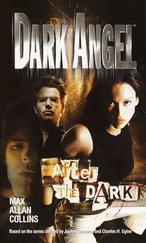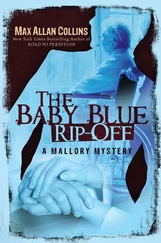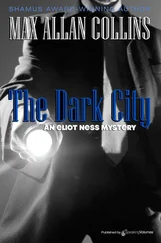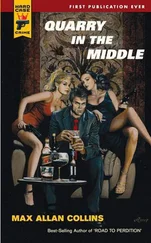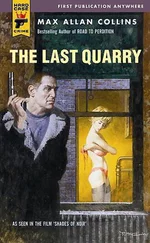Woods flushed, and seemed about to say something he shouldn’t, when Rogers cut in.
“Director Fisk,” she said, “I don’t know how closely you’re following the task force’s investigation into the Bryson ‘suicide,’ and the murders that appear tied to it... but Detective Woods lost an officer when that security office got torched.”
“I am aware of that.”
“We thought it better to have him spearhead the segment of the investigation relating to the officer’s murder, while we concentrate on the other shootings.”
Fisk considered that, then nodded. “Makes sense to me. What do you say, Detective Woods? Does that sound reasonable?”
Woods was frowning, but he said, “It does, Director Fisk.”
“Good. Why don’t you head back to your crime scene and get to work with Special Agents Bohannon and Wade.”
He let out air, not quite a sigh. “I will, ma’am. Thank you.”
Fisk offered her hand again, and they shook.
When he was gone, Fisk said, “My apologies for conducting a meeting in a parking garage like this. But it’s a longstanding Washington tradition for matters best spoken of discreetly.”
The AD rode up in the elevator with them, saying only, “You’ll find your task force waiting,” and when they got out at that floor, Fisk stayed on — her office much higher up, in several senses.
They found the corridors as busy as if this were midday. Busier. Fire a shot anywhere near the White House, and the Washington law enforcement world scrambled.
Luke Hardesy and Anne Nichols were at their desks, drinking coffee, waiting for marching orders. But Miggie was already at work on his tablet with behaviorist Trevor Ivanek at his desk watching the computer god’s progress on the wall monitor. Everyone was rather casually dressed — no ties on the men, pretty Nichols in a silk blouse and slacks — having been called from home for this session.
Rogers and Reeder took positions by the monitor.
Nichols asked, “Can I assume Jerry and Reggie are at Constitution Hall?”
Rogers said, “You can. I’m sure you know the media’s version of what happened, although frankly Joe and I don’t — we’ve been in a law enforcement bubble since it happened. But here’s how it went down.”
She told them, asking Reeder to pitch in here and there.
Sitting forward, Luke Hardesy asked, “Reeder, how well did you know this Akers?”
“Very well. And here’s a possible connection to our double-tap case — for a couple of years, Jay Akers, Chris Bryson, and I were on presidential detail together.”
The shaved head shook solemnly. “Sorry to hear about a good man going down.”
“And Jay was a good man,” Reeder said. “A good man who wanted to talk to me because he’d caught wind of something bad.”
“Like Bryson had wanted to tell you something,” Hardesy said. “Another possible link between investigations?”
“I’m already convinced it’s one investigation.”
Nichols asked, “Is that why we’re here?”
Rogers said, “This is just a typical ‘all hands on deck’ following tonight’s incident. Who knows what else will pop up around town? In the meantime, we’re here.”
With a slow scan of faces, Reeder said, “Are we getting anywhere at connecting our double-tap victims?”
Ivanek said, “Miggie and I’ve been going over every aspect of their lives. No connections so far.”
“Miggie, how about the ‘sink’ search? Narrowing that any?”
He nodded. “To a couple of million possibilities.”
Reeder gave the computer analyst a look.
“No, really,” Miggie said. “We started with over a billion and a quarter.” He shrugged. “I said this would take time.”
Reeder said, “I’m afraid it’s going to take more.”
Miggie’s eyes widened, then narrowed. “How so?”
“Before he died,” Reeder said, “Akers’s last word was ‘senk.’”
Pin-drop silence.
Reeder went on: “He said it more than once, and I even asked if he meant ‘sink.’ He didn’t. We can assume Mrs. Bryson heard it wrong.”
Ivanek asked, “Is that a word, ‘senk’? A name?”
Miggie — face in his tablet, fingers flying — said, “Give me a second... it can be a name... Not a word, unless it’s phonetically the French word cinq .”
Reeder asked, “How many hits for ‘senk’?”
“Not quite 800,000.” Miggie grinned. “But that’s an improvement, anyway.”
Nichols asked, “How does an attempted assassination of a presidential hopeful link up with our murder victims? Including Chris Bryson?”
“Answering that,” Rogers said, “is where we come in.”
Reeder said, “Akers also said the word ‘Capitol.’ I assume he meant the capitol city — Washington, DC — or the building itself. The word, depending on how you spell it, has other meanings, obviously.”
Nichols said, “None that immediately resonate.”
Reeder went on: “That ‘capitol’ and ‘senk’ were his two last words indicates a connection between them.”
Hardesy said, “But how the hell could taking Benjamin out have anything to do with that?” He held up surrender hands. “Rhetorical question.”
Frowning, Ivanek asked, “Why didn’t Benjamin have Secret Service protection? And that isn’t rhetorical.”
Reeder said, “He hasn’t announced his candidacy yet. It’s possible he intended to do that before his speech was cut short.”
The Secret Service provided protection for official candidates only, a policy that had been in place since the attempted assassination of George Wallace in 1972. Bobby Kennedy hadn’t had Secret Service protection, either, when he was shot and killed in 1968.
Reeder said, “Had Benjamin announced his candidacy at that event — and my bet is he would have — any later attempts on him would become far more tricky. The Secret Service would be in place.”
Nichols asked, “Out of all the potential presidential hopefuls... why kill Adam Benjamin? Whose idea is that?”
Ivanek opened his palms. “Any psychotic with less than a billion dollars, whose envy has run amok. Any fringe figure, right or left, who might consider a centrist a threat. Certain traditional liberal or conservative politicians might fear the loss of money that a middle-of-the-road populist might generate. Who knows, maybe forces on the left and right pooled their money to take him off the ballot before he’s even on it.”
Reeder said, “He’s bad for business for both sides.”
Miggie brought the shooter up on the monitor — on stage, gun in hand. Not, Rogers was thankful, a shot of the dead man after her bullet had plowed through his brain.
“Pulled from an audience member’s posted cell phone photo,” Miggie said. “Front row, I’d say.” Fingers flew again. “Now, here our man is, as they say, in happier times.”
A smiling head-and-shoulders shot took the screen. Sandy haired, glasses, unremarkable. He was such a nice man, the neighbors would say. Quiet, nice to dogs and children.
“Photo from the church where he was a lay minister,” Miggie said. “Thomas Louis Stanton — our late shooter.”
“Church,” Hardesy muttered. “Jesus.”
Reeder asked, “Does the media have this yet?”
“Don’t think so. Bohannon sent me the name, from Constitution Hall, and I did some preliminary digging. Honorably discharged from the Army, divorced, father of two boys, who live with their mother. And you’ll love this. Ohio state trooper.”
All around the room, heads were shaking.
“ Former , I should say,” Miggie said. “Retired last year on disability — stage-four cancer.”
Читать дальше
